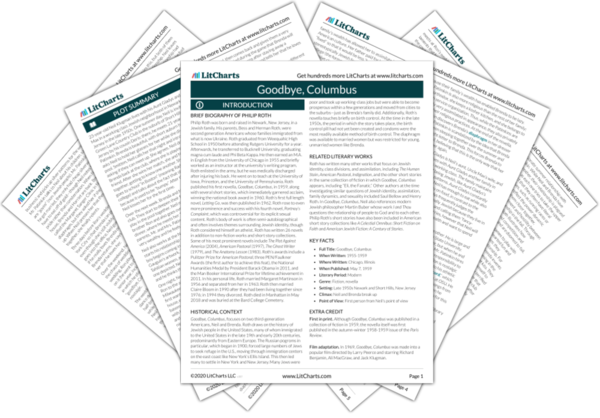Roth continues to provide small details that illustrate Brenda and Neil’s class divide. While she spends her time playing tennis at country clubs in the suburbs, Neil lives in an apartment in the city of Newark and drives a very old car. Cars are classic symbols of social status and the American dream, and the fact that he has a very old one illustrates that Neil may have some means, but not so much that he falls into the upper echelon of society, as Brenda does.
